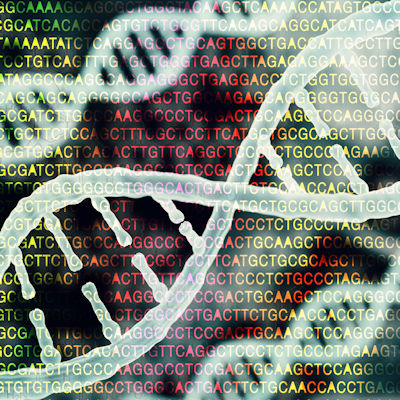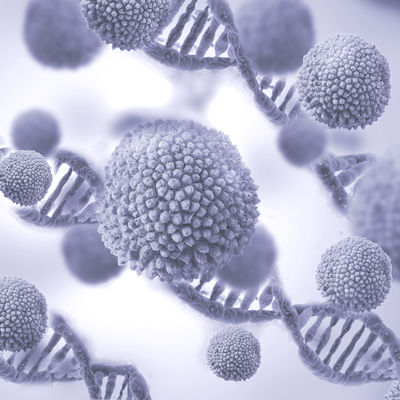June 24, 2020 -- Highly targeted and adaptable platforms allow researchers to develop cancer vaccines for a multitude of different cancer types and even create personalized vaccines for individual cancer patients. Researchers from BioNTech and the Wistar Institute shared exciting developments in cancer vaccines in a methods workshop during the American Association for Cancer Research (AACR) 2020 virtual annual meeting II.
Cancer vaccines are a type of immunotherapy that treats cancers by strengthening the body's natural immune responses against cancer. Cancer vaccines target tumor-associated antigens that are not present in normal cells. Patient-specific neoantigens -- newly formed antigens that have not previously been recognized by the immune system -- arise as a consequence of tumor-specific mutations. Revolutionary genomic technologies have allowed for the development of targeted strategies to improve innate immune responses to cancers by utilizing RNA and DNA.
RNA vaccines emerge for cancer
Gene-encoding mRNA is an attractive cancer vaccine format because of its dual mode of action, safety profile, and ease of manufacturing, according to Dr. Ozlem Tureci, PhD, chief medical officer of BioNTech, in a presentation. These mRNA vaccines function by delivering a precision blueprint for expression of a vaccine antigen, but also have intrinsic adjuvant activity through activation of various innate immune sensors.
Gene-encoding mRNA is simply single-stranded RNA that resembles fully processed mRNA molecules naturally found in the cytoplasm of eukaryotic cells. It often includes coding elements such as cognate nucleotides, modified nucleoside triphosphates, and 5' caps. In vitro transcription can be achieved with the use of linearized plasmids, polymerase chain reaction (PCR) products, or synthesized DNA that is recognized by a phage polymerase. Then purification can be completed by conventional methods of nucleic isolation. One of the main challenges associated with gene-encoding mRNA production is short intracellular half-life. However, the translational efficiency and cytoplasmic stability of the mRNA can be improved by optimizing coding elements.
Naked or complexed/nanoparticulate gene-encoding mRNA cancer vaccines can be administered in a number of routes including subcutaneously or intradermally. Preclinical studies demonstrated that these and other administration methods successfully transport the vaccine to specific tissues and cell types, usually dendritic cells within the lymph nodes. Ideally, direct delivery to the lymph nodes promptly induces antitumor immunity within dendritic cells, a type of antigen-presenting cell.
Once in the cytoplasm, mRNA is subject to the same cellular mechanisms as native mRNA. The encoded protein that is translated undergoes post-translation modifications which allow the engineered vaccine antigens to target major histocompatibility complex (MHC) class I and class II compartments. Individualized mRNA vaccines can be developed with neoantigens for tumor-specific mutations.
Tureci presented data from a study of a lipid-coated mRNA vaccine for advanced melanoma patients. Her team found that the vaccine boosted intrinsic cytokine levels and boosted T-cell responses against at least one cancer antigen. Moreover, they demonstrated that the vaccine was durable over a period of more than eight weeks with a strong antigen-specific induced T-cell response.
In summary, Tureci explained that RNA is a versatile tool for individualized cancer vaccines with neoantigens and new applications are rapidly emerging.
Finely tuned DNA can be an effective treatment for cancer
Technological advancements over the last decade have dramatically improved synthetic DNA immunization efficacy, as explained by David Weiner, PhD of the Wistar Institute, in his presentation. These advancements have occurred in a number of areas including more potent and optimized gene inserts, improved development of genetic adjuvants, and tailored delivery for specific applications.
In the case of synthetic DNA vaccination, local intradermal or intramuscular delivery and expression is now possible. This simple and rapid application method results in high consistency of transfection. Stable formulations can be stored at room temperature and application does not require expensive equipment.
Synthetic DNA vaccines induce robust anti-tumor immunity, according to Weiner as described in a phase I study of an Inovio synthetic DNA vaccine against HPV, which causes 4.5% of all cancers worldwide. The boost in T-cell responses with the administration of DNA vaccines has led researchers to explore their impact on breaking tolerance to cancer antigens, as demonstrated in glioblastoma multiforme tumors. Researchers found that in combination with an immunotherapy (programmed cell death protein 1; PD-1), synthetic nucleic acid-encoding antigens are immunogenic and generate tumor-specific T-cell responses in patients.
Another exciting field of cancer research is DNA-launch nano-vaccines that are capable of delivering cancer-specific epitopes. Preliminary research has shown that these vaccines confer complete protection in as much as 80% of immunized animals tested.
Weiner urged that personalized applications of these synthetic DNA vaccine technologies will become important in the future of cancer treatment.
Do you have a unique perspective on your research related to cancer vaccines or immunotherapies? Contact the editor today to learn more.
Copyright © 2020 scienceboard.net









